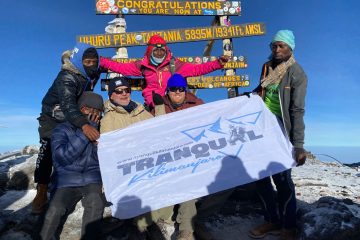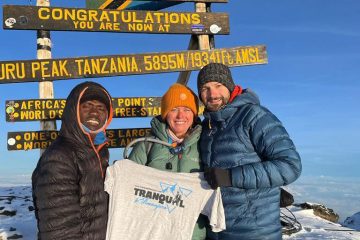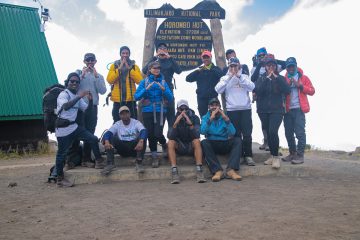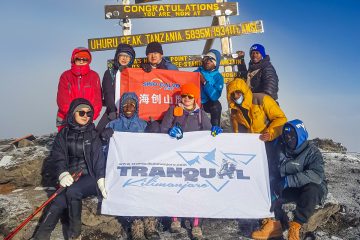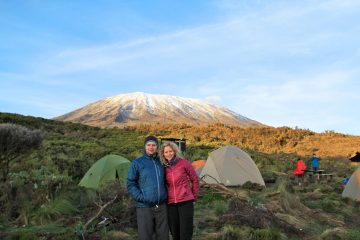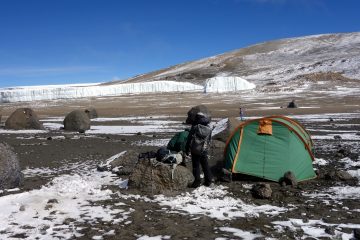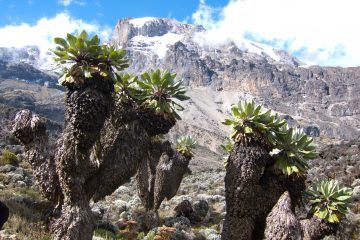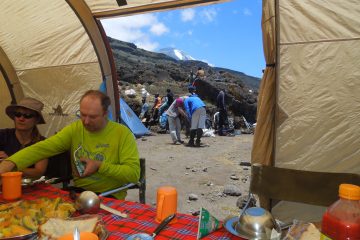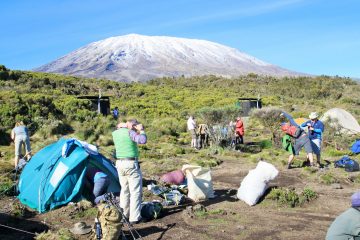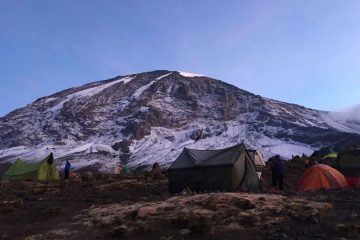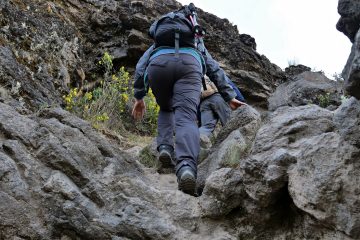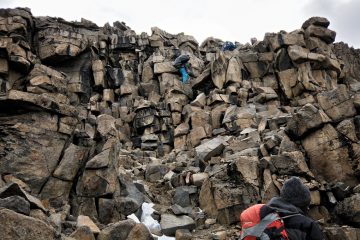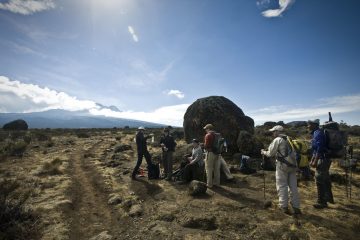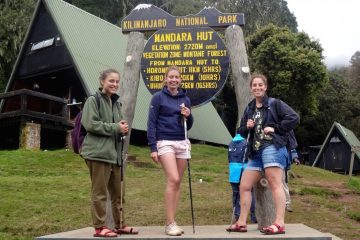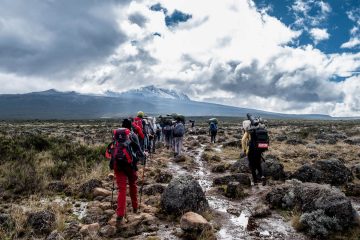Food on Mount Kilimanjaro is usually prepared by our able and experienced chefs/cooks. Meals will be prepared according to our menu or as per your instructions. That being said, we pay special attention to your dietary requirements, you may request a special diet according to your need, restrictions or doctor recommendations.
For a vegetarian diet for our Kilimanjaro vegan climbers, please click here.
Our mountain cuisine consists of three main meals per day namely, Breakfast, Lunch and Dinner.
Our chefs are very critical at controlling things like red meat, fats and cholesterol in our cooking oil.
Please inform us before your climb if you have any special dietary restrictions or recommendations.
Despite limited ingredients and equipment on the mountain, our chefs/cooks will go out their way to prepare and serve you sumptuous meals that are easily digestible. They know what your body needs in regards to the tedious days of trekking on the mountain. You will most definitely need balanced diet meals as well as a good supply of energy.
Specialty foods on Mount Kilimanjaro
Specialty foods are not easy to find in Tanzania if needed, we recommend that you come with your own specific ingredients and let our chefs/cooks prepare the meals, just the way you like them.
Also, make sure that you bring just enough quantity to last you the whole trip. Our Tranquil Kilimanjaro office representatives are available anytime in case you need to ask or discuss anything concerning your diet and meals on the mountain.
Other specialty foods like dried fruits, chocolates and cheeses can be found in Tanzania. Please let us know about your special dietary needs before climbing Mount Kilimanjaro with us here.
Special Dietary Requirements on Mount Kilimanjaro
If you are on a low carb, gluten-free, or diabetic (low sugar) diet, your main aim will take enough fat and protein to provide your body with as much energy as possible for your trek.
You’ll need to avoid meals that contain bread, oats, fruit, starchy veggies, pasta, rice, and desserts that may cause inflammation on your body or make your blood sugar levels shoot above normal levels
So, your daily Kilimanjaro menu due to your condition may include more eggs, meat, low-carb veggies, and cheese.
Here are some best practices for eating and drinking on Mount Kilimanjaro.
- Wash your hands before every meal.
- Do not skip your meals. Even if you do not feel hungry, just eat.
- Eat a high carbohydrate diet for energy(which we will provide).
- Bring snacks from home that you love to eat.
- Drink at least four liters of water per day.
- Take electrolytes.
- Avoid consumption of alcohol, tobacco or depressant drugs including barbiturates, tranquilizers, sleeping pills and opiates.
- Avoid consuming excessive caffeine.

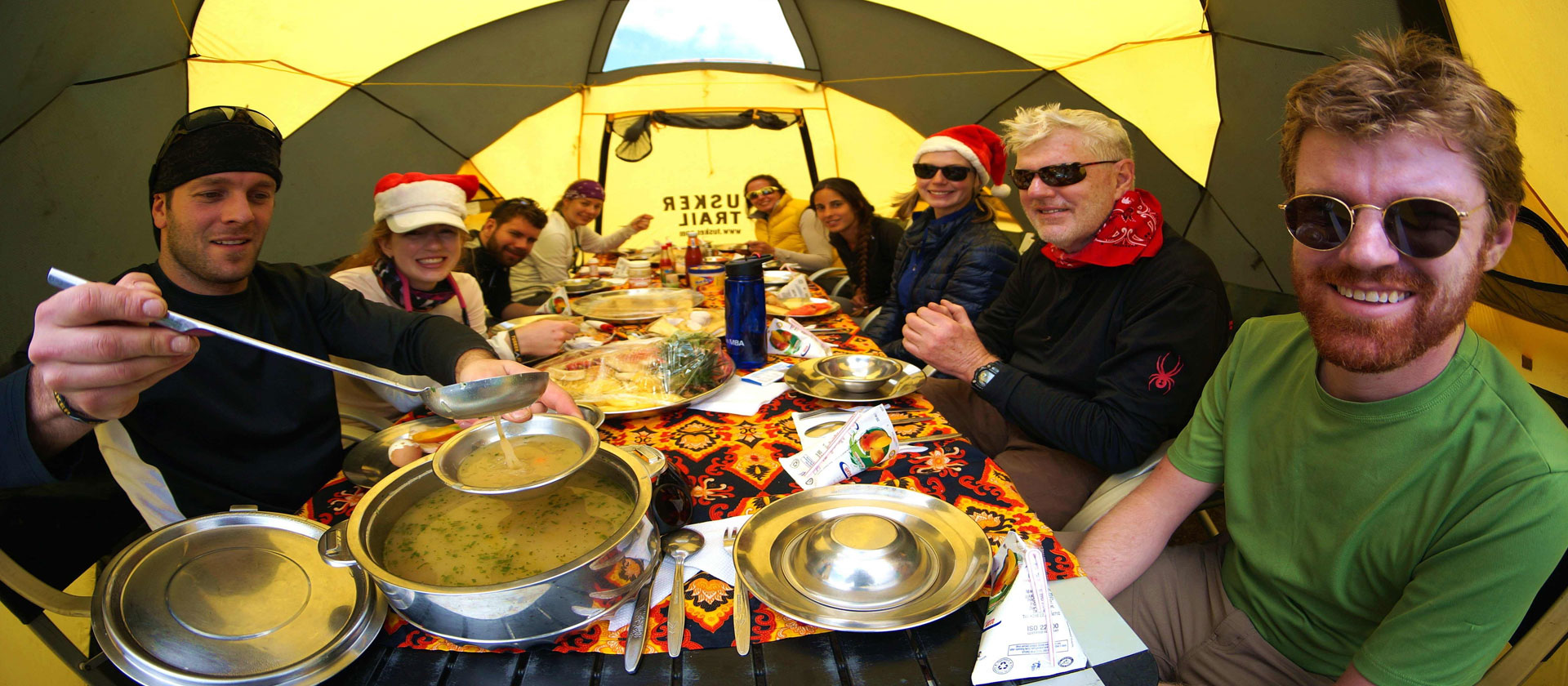
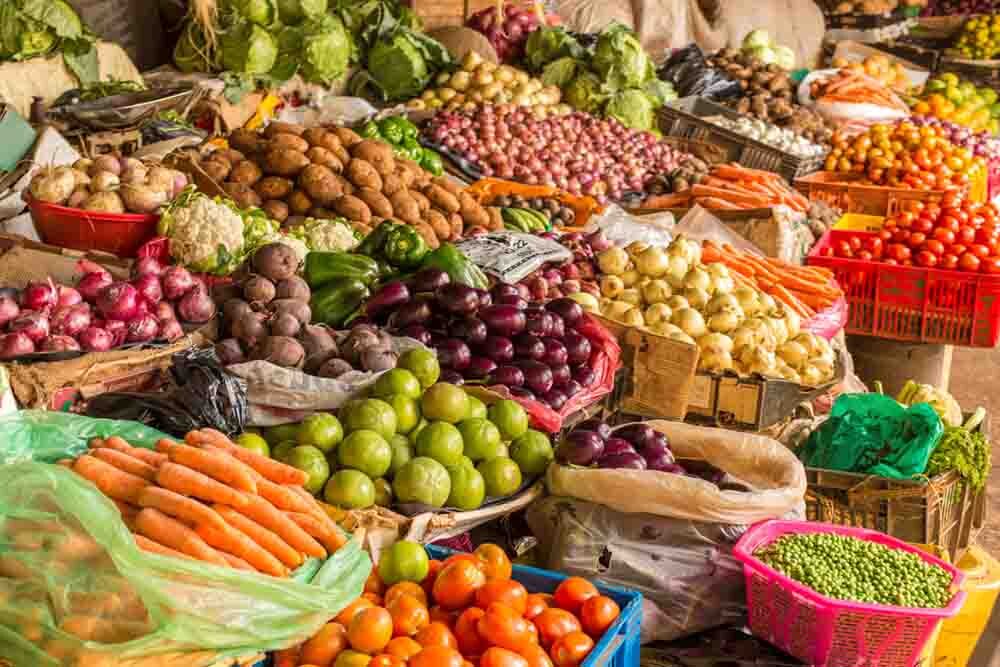
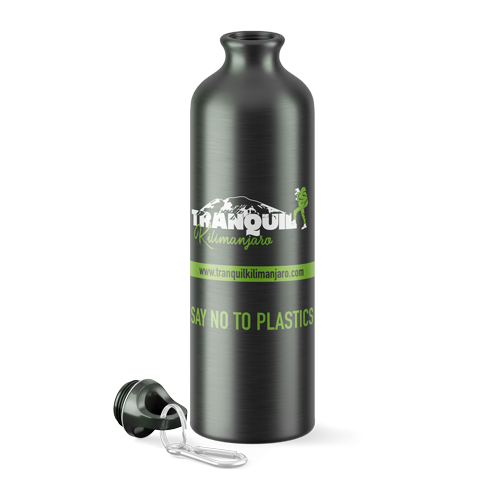 Drinking water is very vital in combating altitude sickness and helps with acclimatization when you stay hydrated. It is recommended that you drink at least 3-5 liters of water every day while on the mountain. We will provide bottled water at the campsites but mostly water on Mount Kilimanjaro is tapped from mountain streams and treated with water purifying tablets by porters along the route.
Drinking water is very vital in combating altitude sickness and helps with acclimatization when you stay hydrated. It is recommended that you drink at least 3-5 liters of water every day while on the mountain. We will provide bottled water at the campsites but mostly water on Mount Kilimanjaro is tapped from mountain streams and treated with water purifying tablets by porters along the route.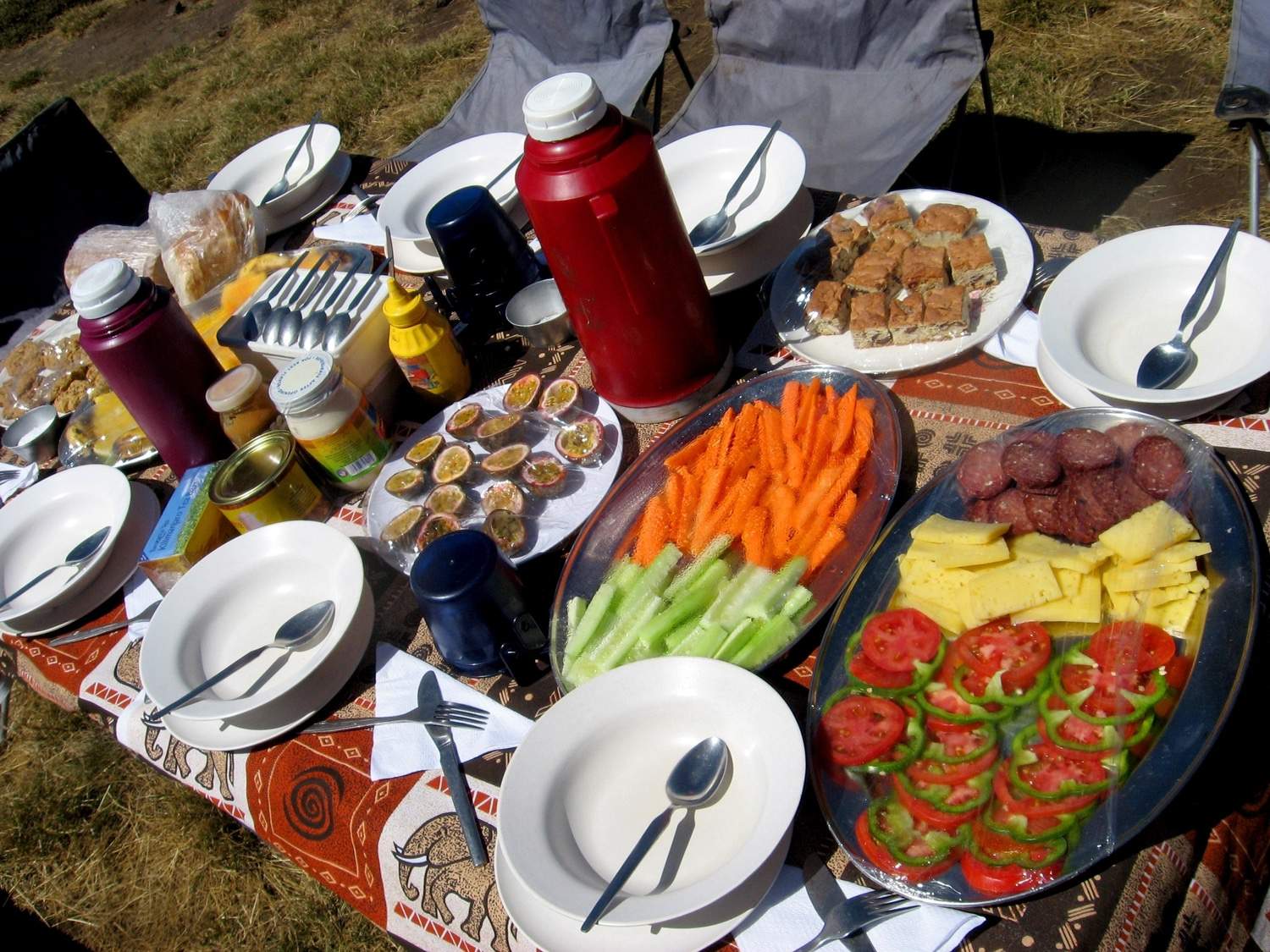
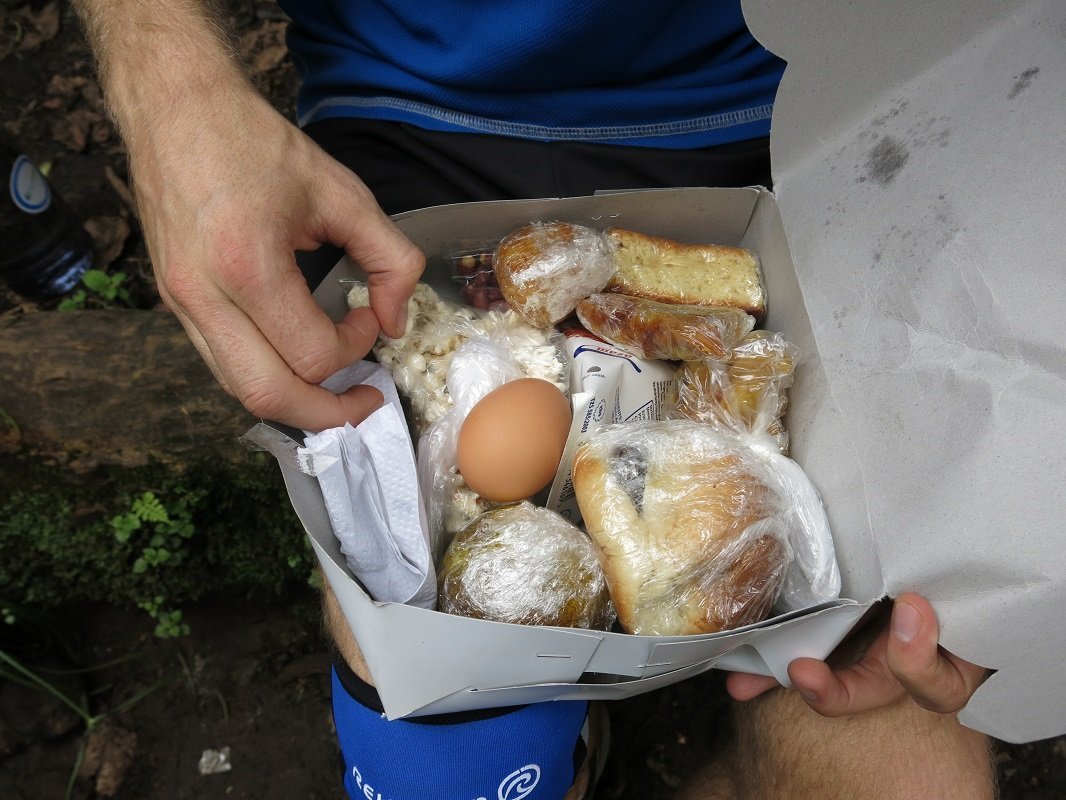 Lunch on Kilimanjaro is usually prepared by the cook/chef during breakfast time in the morning and is usually packed and carried by climbers in their
Lunch on Kilimanjaro is usually prepared by the cook/chef during breakfast time in the morning and is usually packed and carried by climbers in their 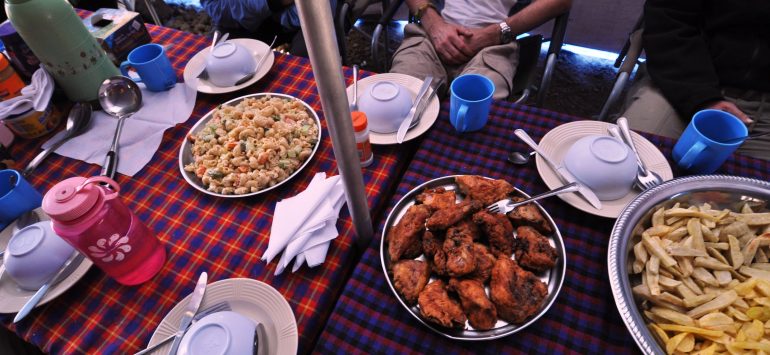
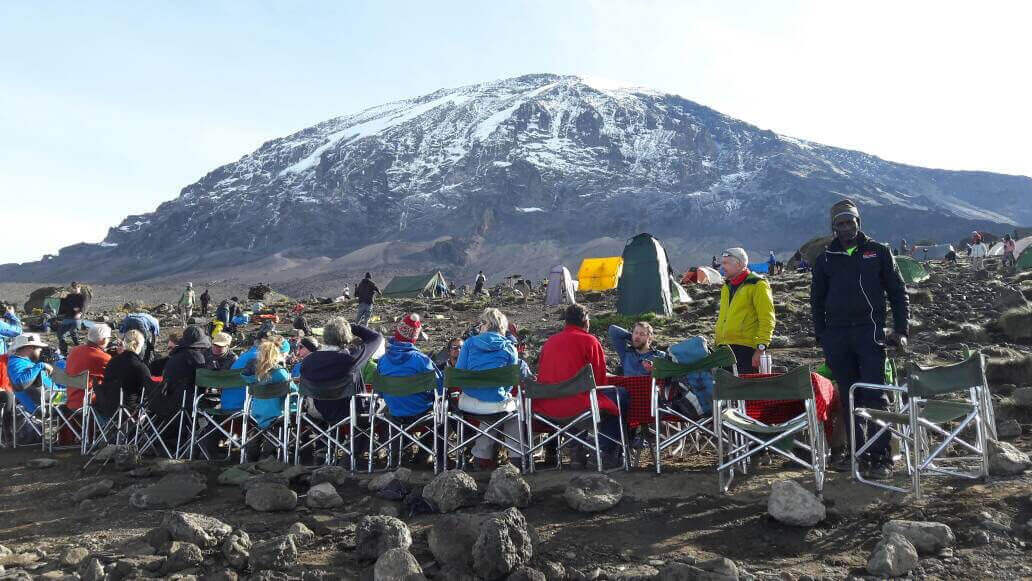
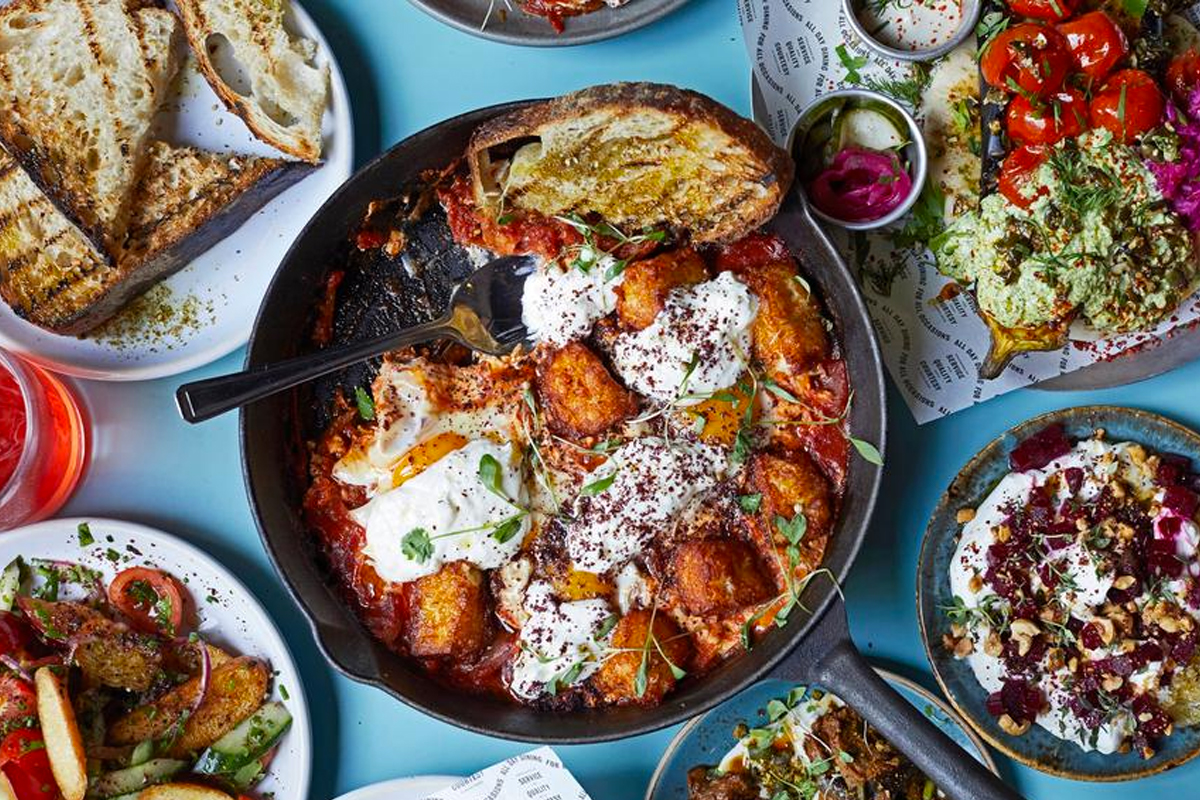 We take the dietary requirements of our Jewish clients seriously by preparing meals that follow a set of dietary laws of the Jews (kashrut) while at the same time respecting Jewish prayer times (Shabbat) while on Mount Kilimanjaro, Tanzania. We will provide fresh fruits and vegetables and try our best to come up with a suitable meal plan and menu that will have a good supply of high-calorie, high-carbohydrate diet that is, of course, Kosher certified to compensate for the calorie-burning trekking activities on Mount Kilimanjaro.
We take the dietary requirements of our Jewish clients seriously by preparing meals that follow a set of dietary laws of the Jews (kashrut) while at the same time respecting Jewish prayer times (Shabbat) while on Mount Kilimanjaro, Tanzania. We will provide fresh fruits and vegetables and try our best to come up with a suitable meal plan and menu that will have a good supply of high-calorie, high-carbohydrate diet that is, of course, Kosher certified to compensate for the calorie-burning trekking activities on Mount Kilimanjaro.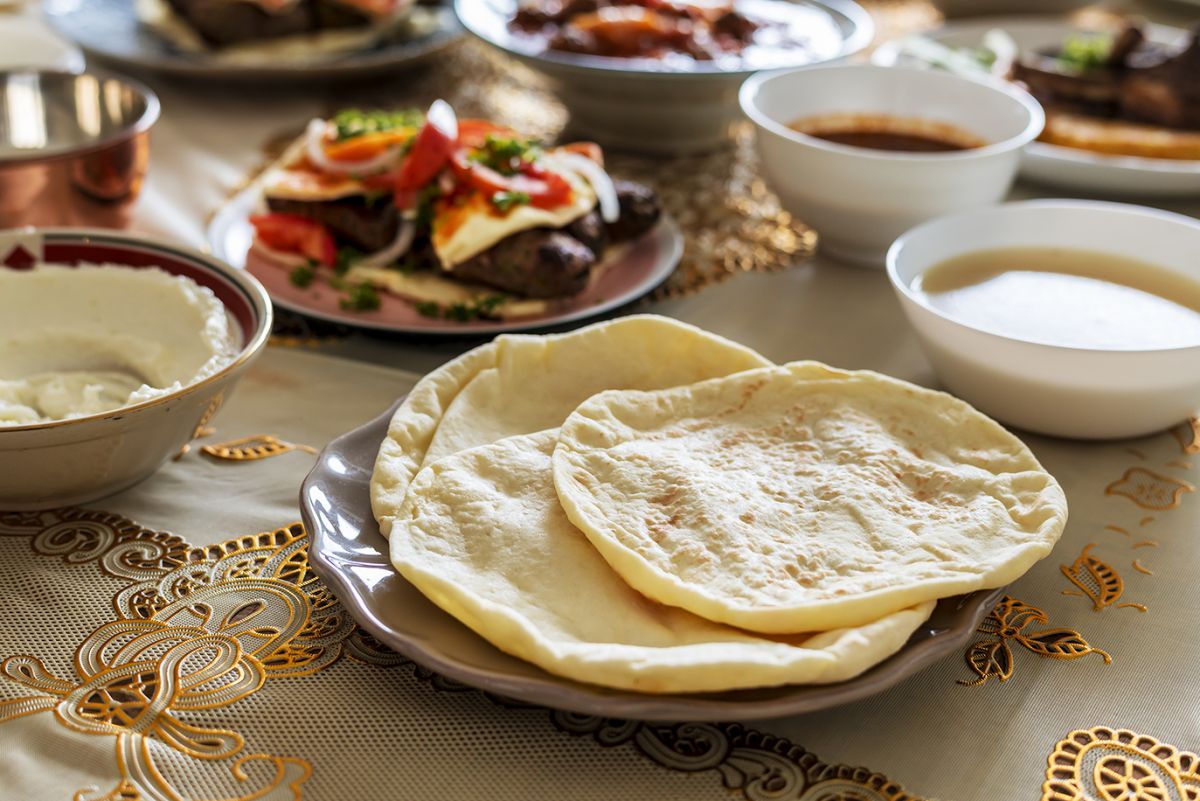 Tranquil Kilimanjaro will offer fresh halal food, prepared in accordance with Islamic guidance. We will offer a Muslim-friendly service for mountain climbing in Tanzania and Muslim guides plus chef/cook. The importance of a Muslim guide is to make sure the environment is conducive for Muslim prayers and making sure you have a mountain taint next to your sleeping tents.
Tranquil Kilimanjaro will offer fresh halal food, prepared in accordance with Islamic guidance. We will offer a Muslim-friendly service for mountain climbing in Tanzania and Muslim guides plus chef/cook. The importance of a Muslim guide is to make sure the environment is conducive for Muslim prayers and making sure you have a mountain taint next to your sleeping tents.